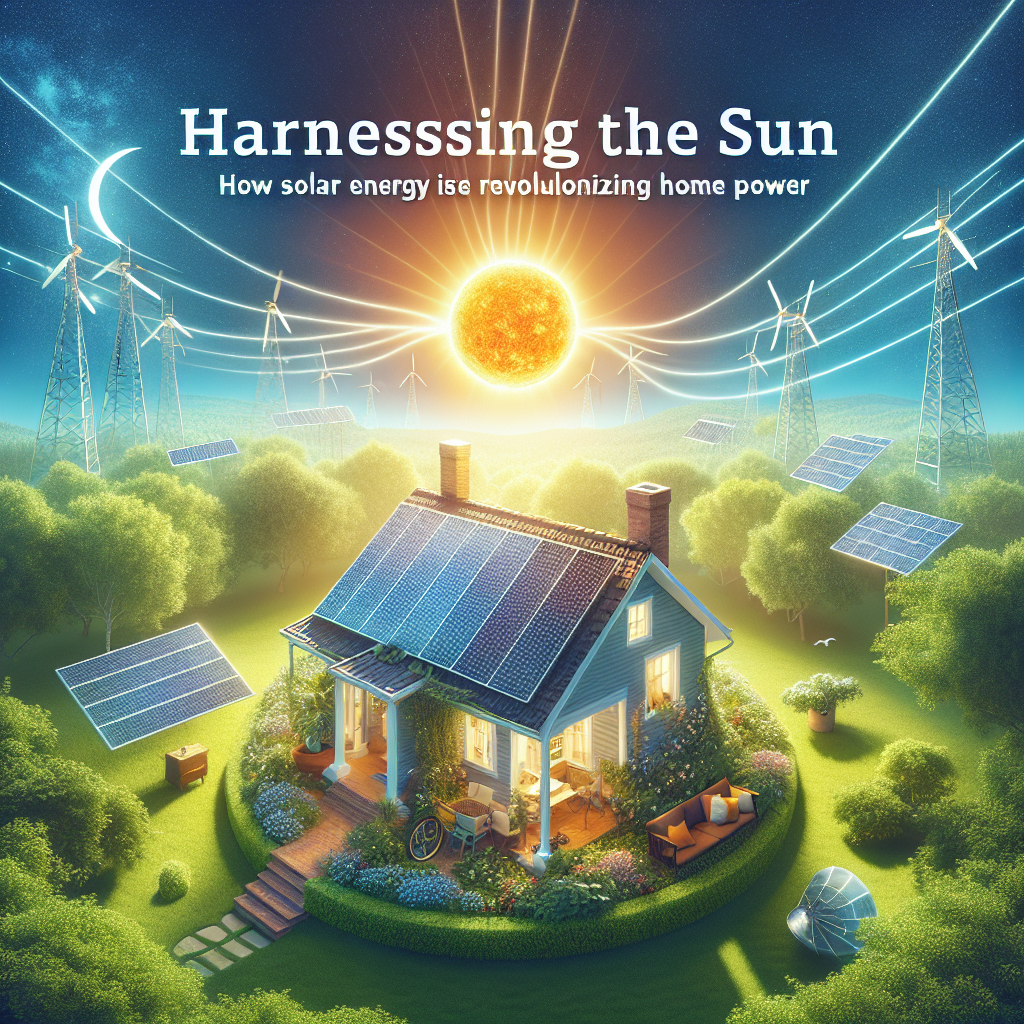The quest for sustainable energy solutions has brought solar power into the spotlight, transforming how we think about home electricity needs. Solar energy is no longer a niche or experimental option; it’s becoming a mainstream choice for homeowners looking to reduce their energy bills, lessen their carbon footprints, and contribute to a cleaner planet. Here’s a deep dive into how solar energy is revolutionizing home power.
The Basics of Solar Energy
Solar energy harnesses sunlight through solar panels, converting it into electricity through photovoltaic (PV) cells. These cells absorb photons from sunlight, creating an electric current. This process, combined with advancements in technology, has made solar installations more efficient and affordable than ever before.
How Solar Panels Work
-
- Absorption: Solar panels consist of many PV cells that absorb sunlight.
-
- Conversion: When sunlight hits these cells, it excites electrons, resulting in direct current (DC) electricity.
-
- Inversion: An inverter converts DC electricity to alternating current (AC), which is usable in homes.
-
- Utilization: Homeowners can use this electricity to power appliances, lights, and heating.
The Economic Benefits
1. Savings on Energy Bills
One of the most appealing aspects of solar energy is the potential for significant savings. Once solar panels are installed, they can drastically reduce or even eliminate electricity bills. In regions with high electricity rates, this can lead to thousands of dollars in savings over the life of the panels.
2. Government Incentives and Tax Credits
Various governments around the world offer incentives to encourage solar adoption. Tax credits, rebates, and renewable energy certificates can offset installation costs, making solar systems even more attractive. For example, in the U.S., the federal solar tax credit allows homeowners to deduct a significant percentage of the cost of solar energy systems from their federal taxes.
3. Increased Property Value
Homes equipped with solar panels often see an increase in property value. According to studies, homes with solar energy systems can sell for more than their non-solar counterparts, appealing to environmentally conscious buyers.
Environmental Impact
Solar energy provides a clean alternative to fossil fuels, which contribute to greenhouse gas emissions and climate change. Switching to solar power can:
-
- Reduce Carbon Footprint: Each kilowatt-hour (kWh) of solar energy produced significantly reduces carbon dioxide emissions compared to coal or natural gas.
-
- Decrease Air Pollution: By reducing reliance on fossil fuels, solar energy helps improve air quality, benefiting public health.
-
- Promote Sustainable Practices: Adopting solar energy encourages a cultural shift towards sustainability, inspiring others to consider renewable options.
Technological Innovations
Recent advancements in technology have dramatically improved solar energy systems’ efficiency and affordability. Innovations include:
1. Bifacial Solar Panels
Bifacial solar panels capture sunlight from both sides, increasing energy generation. These panels can produce 10-20% more energy than traditional panels.
2. Energy Storage Solutions
With the development of cost-effective battery storage systems, homeowners can store excess energy generated during sunny days for use at night or during cloudy weather. This makes solar systems more reliable and increases energy independence.
3. Smart Technology Integration
Many modern solar installations come with smart technology that allows homeowners to monitor their energy consumption and production in real time. This information can help optimize energy usage and enhance efficiency.
Community Solar Initiatives
For homeowners who may not have suitable roofs for solar panels, community solar programs offer an alternative. These initiatives allow multiple households to invest in a shared solar power system, making renewable energy accessible to more people while promoting local energy resilience.
Conclusion
Harnessing solar energy is revolutionizing the way we power our homes. With economic, environmental, and technological benefits, solar power stands as a beacon of hope in the fight against climate change. As awareness grows and technology continues to advance, it is clear that solar energy is not just a trend; it is the future of home power. Embracing the sun’s energy leads to a sustainable and economically viable solution that will significantly impact our planet for generations to come.
Get Started
Considering a solar system for your home? Research local installations, evaluate incentives, and consult with professionals to find the best solution tailored to your energy needs. Harness the sun, invest in your future, and contribute to a cleaner, more sustainable world.



